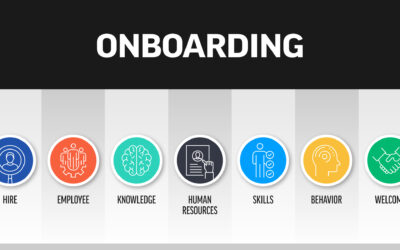From time to time, independent insurance agents will have to negotiate with their clients about their insurance policies—maybe a new homeowner will ask the agent to match a competitor’s lower monthly premium because he or she feels more comfortable signing with the agent. Or, perhaps one of your commercial clients wants to negotiate the risks that are covered by their commercial policies.
No matter what the negotiation involves, tact and respect is critical. Here are five important tips that will help you at the drawing table:
- Be wary of positional bargaining. When you take positions in a negotiation, you might marry it. In other words, if you position yourself against your client, then you might not be able to reach an agreement. There’s much more to a negotiation than the premium you’ve offered and the premium your client wants.
- Use a more principled approach. Instead of taking a position in the negotiation, find out the interests of each party. For example, let’s suppose your client purchased a brand new Lamborghini recently. Unfortunately, her carrier’s underwriting rules don’t allow the addition of luxury cars to the policy. It’s your job to negotiate with the carrier about covering such a high risk that it isn’t used to covering. You could take the position that the car is purchased already, and the carrier needs to cover it. But, that’s a quick way to shut down communication between you and the carrier. Instead, explain your interests to the carrier: You want to help a trusted client have the optimal coverage for the new additions to the car service company. Then, find out what the carrier’s interests are—does it need to learn more about this requirement? Is it worried about the risks associated with such a high limit? Does it want to learn more about your client before it agrees to add this risk to the contract between the client and the carrier? When you slow down and discuss interests openly, you have a better chance of reaching an agreement in a negotiation.
- Separate yourself and your client from the problem that you’re trying to solve. It’s common that parties in a negotiation forget that each party is a person with values, and perspective, and motivation, and emotion. Part of taking a principled approach is to see that your client isn’t just an insured—he or she is a human. Don’t define your client by what he or she wants. And, don’t define yourself simply as a cog in your agency. You have values, perspective, motivation and emotion, too. Talk to each other like people, not problems.
- Ask questions. Why is this prospective homeowners client asking you to consider matching a competitor’s quoted premium? Did a series of events cause her to lose her job right after she purchased her home? Are she and her partner expecting a child? Ask questions and get to know her. In the long run, this will foster a sense of caring for you and for her, and strengthen your agent-insured relationship—which potentially can become long-lasting.
- Don’t sacrifice yourself or your agency for the greater good. It’s best to reach a compromise or agreement that satisfies the needs of both you and your client. But it’s also important to remember that it’s OK to settle at an impasse. It’s possible that the impasse may not be permanent. But, impasses are OK. You shouldn’t compromise your needs or values to the point at which they aren’t being met, and nor should your client. Sometimes, an impasse saves the relationship in the long run, and another solution outside of your relationship with the client is found. And, if an impasse means the end of a relationship—then it might be time to move on, anyway.
These tips are just the tip of the iceberg when it comes to negotiating insurance contracts, premiums and settlements with your clients. If you keep these in mind at your next negotiation, you may be surprised at how simple it is to reach an agreement.

Alexandra Chouinard
Alexandra Chouinard has editing, writing, advertising and publishing experience from her Alma Mater, Loyola University, where she earned a dual Bachelor of Arts Degree in Writing and Communication.






